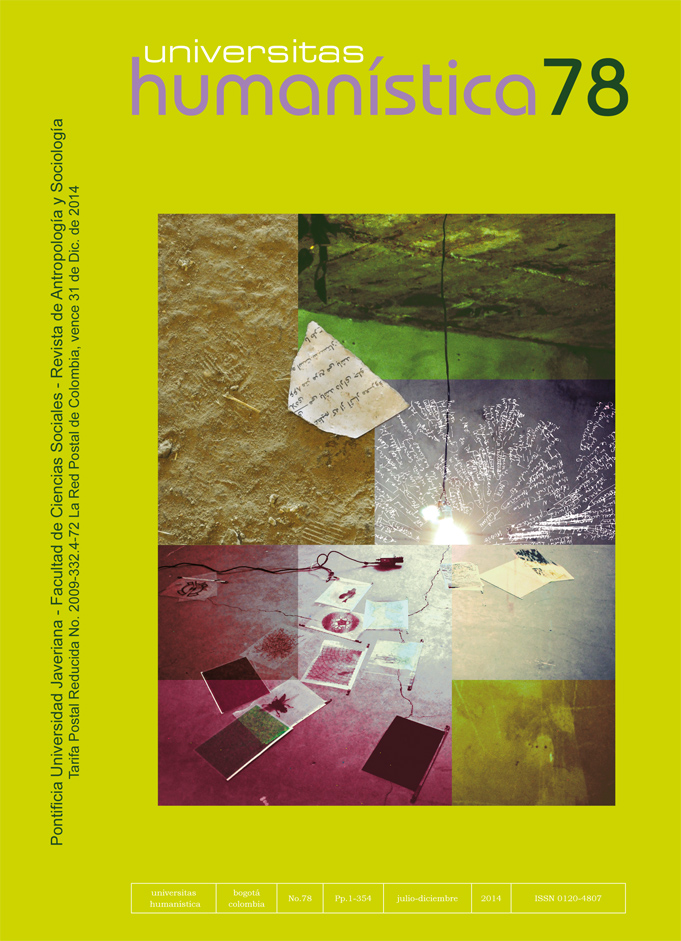Resumo
Este artigo analisa a forma em que foram utilizados discursos e contradiscursos na construção de frames por parte do ator-rede, Processo de Comunidades Negras, na sua interlocução com o Estado colombiano no marco das audiências da Comissão Interamericana de Direitos Humanos (CIDH) entre 2007 e 2013. Teoricamente são abordadas as noções de biopoder, biopolítica, governamentalidade e práticas discursivas desenvolvidas por Michel Foucault e a teoria dos Frames de Snow e Bendford. Metodologicamente analisam-se áudios e vídeos das audiências ante a CIDH. Na análise da interação Estado-peticionários afro identificaram-se frames, discursos e contradiscursos referidos ao racismo,a territorialidade, a vitimização das populações e mulheres afro e o conflito armado. As conclusões identificam frames em torno do tema de direitos humanos, orientados ao aproveitamento das oportunidades discursivas e políticas abertas pela CIDH para incidir nas decisões do ator estatal.
A revista Universitas Humanística encontra-se registada sob a licencia Creative Commons Versão 4.0 Internacional. Portanto, esta obra pode se reproduzir, distribuir e comunicar publicamente em formato digital, sempre que dado o crédito apropriado para os autores e a Pontificia Universidad Javeriana. Permite-se citar, adaptar, remixar, transformar, autoarquivar, republicar e criar a partir do material, para qualquer fim, mesmo que comercial, sempre que indicado apropriadamente o nome do criador, provido um link para a obra original e indicado se mudanças foram feitas. A Pontificia Universidad Javeriana não retém os direitos sobre as obras publicadas e os conteúdos são responsabilidade exclusiva dos autores, os quais conservam seus direitos morais, intelectuais, de privacidade e publicidade.
O aval sobre a intervenção da obra (revisão, correção, edição, tradução, formatação) e a subsequente difusão disponibiliza-se através de licença de uso e não através de transmissão de direitos, o que representa que a revista e a Pontificia Universidad Javeriana são isentas de qualquer responsabilidade que puder se derivar de uma prática ética pobre por parte dos autores. Em consequência da proteção fornecida pela licença de uso, a revista não fica na obrigação de publicar retratações ou alterar informações já publicadas, a não ser que a errata seja decorrente do processo de gestão editorial. A publicação de conteúdos nesta revista não representa royalties para os contribuintes.


